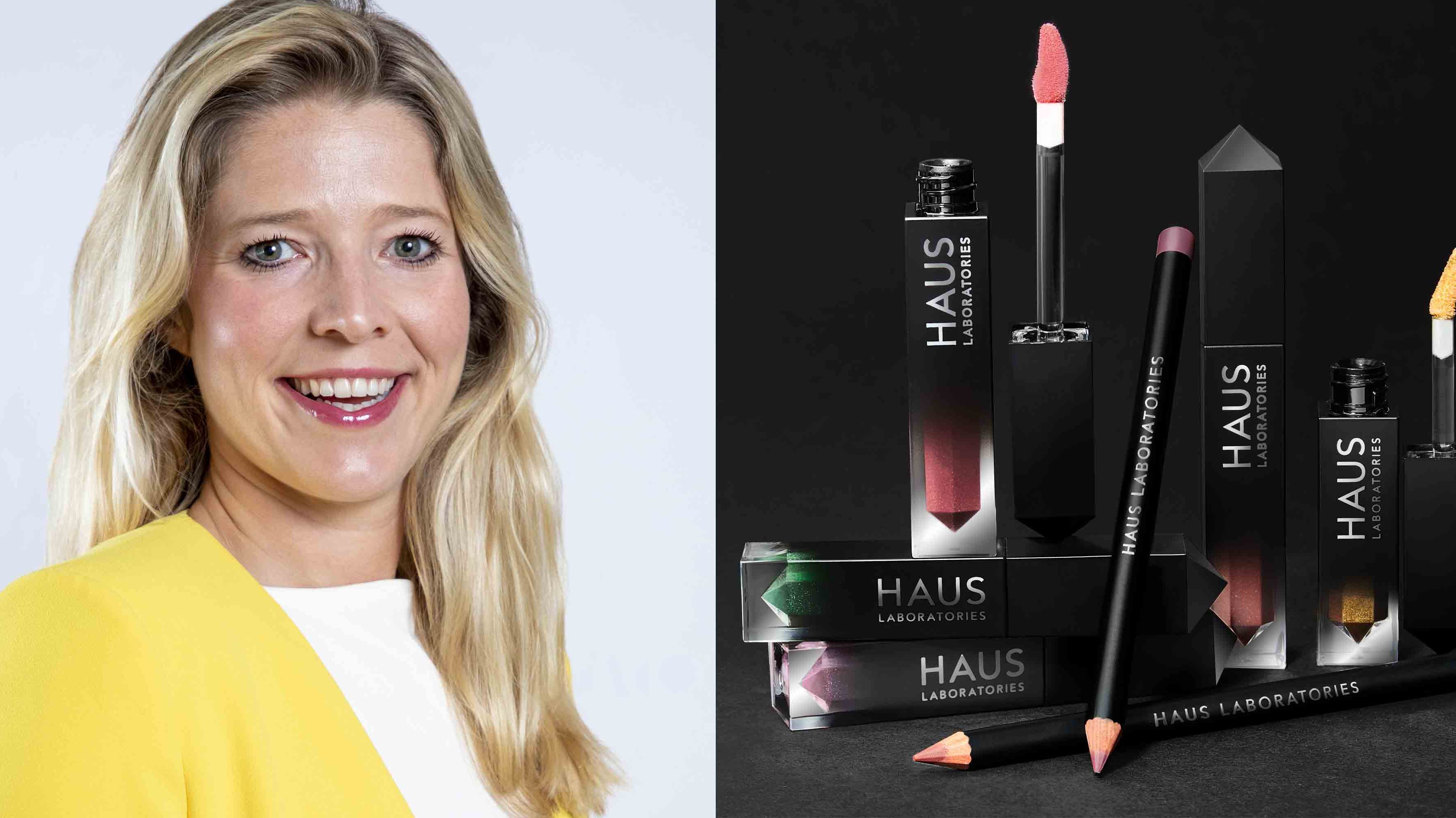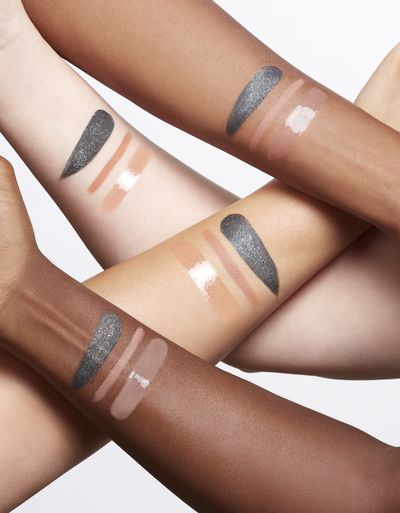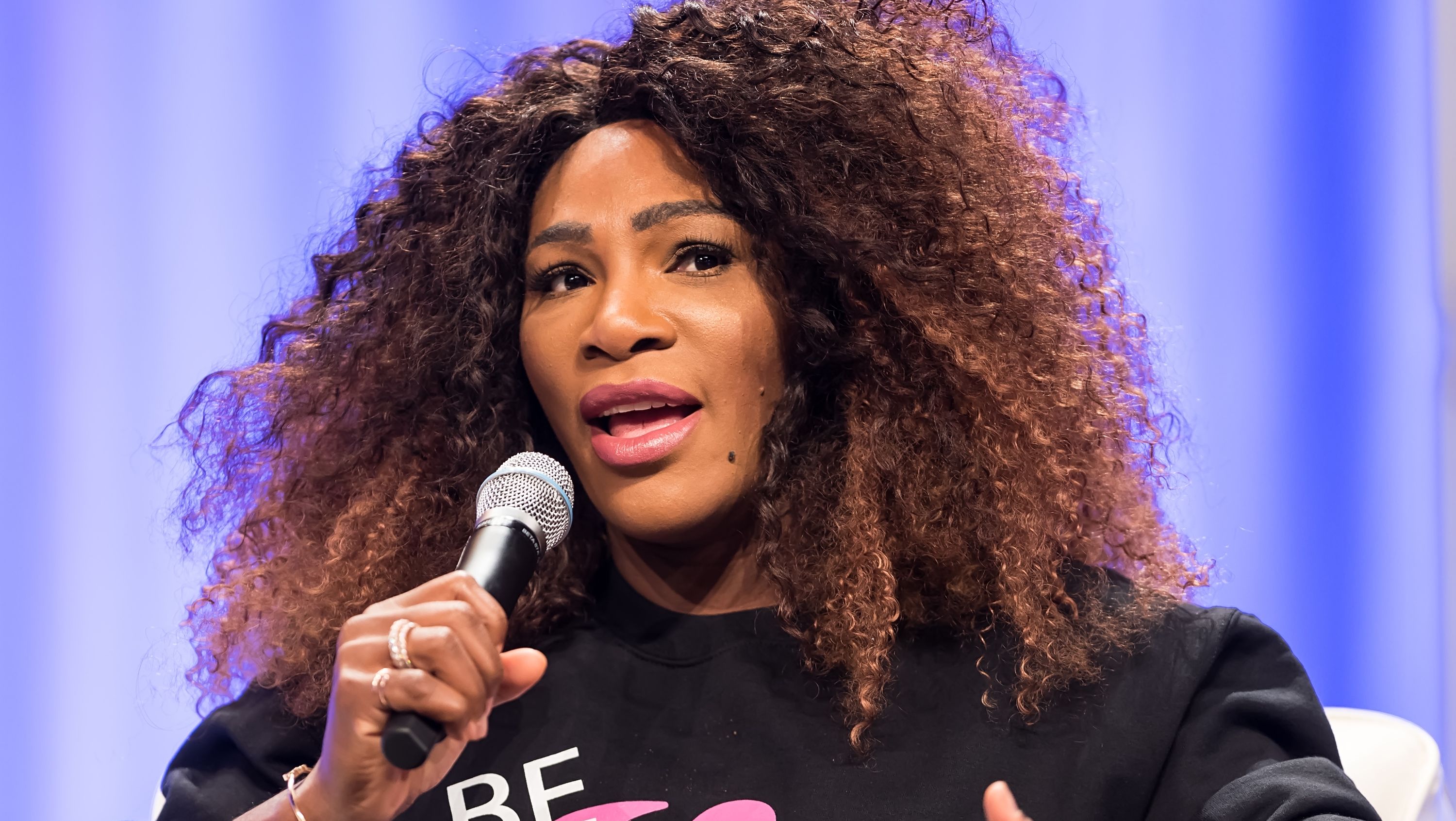Why I Invested in Lady Gaga’s Haus Laboratories
Nicole Quinn of Lightspeed Venture Partners shares what it was like to launch the new beauty company with the legend herself—and what she looks for when making investments.

Investor Nicole Quinn, partner at Lightspeed Venture Partners, has funded many incredibly popular and successful brands including Zola, Goop, Rothy’s, Cameo, and Lady Gaga’s highly-anticipated new beauty company, Haus Laboratories. Here, Quinn shares how Haus (which began selling pre-orders on Amazon in July) got started, what it's like working with Lady Gaga, and her advice for women looking for investment in their own companies.
Marie Claire: You were involved in Haus from the ground-up. How did this brand come about?
Nicole Quinn: We had been looking into the beauty space for about two years. For us, beauty is such an exciting category. From an investor standpoint, it has a high repeat rate, high margins, high customer love, huge virality associated with it. We love the fact that customers will take selfies of themselves and share it out to all of their followers.
We went about trying to find the very best beauty company that we could, meeting so many companies. We found that many beauty businesses were about fitting in. And then we met Gaga, and Haus was all about standing out. Really thinking outside the box, coloring outside the lines.

MC: What was that first meeting with Lady Gaga like?
NQ: It was probably two years ago when we first heard about Lady Gaga's passion for beauty, which we heard from her agency. I had spoken to different people on her team, and I was sitting down with her manager at a coffee shop, and it was meant to be just him and me. And then I hear, "Surprise!" and I turn around and Gaga's there, wearing a little black tank top and shorts. Halfway through the meeting, she says, “I've actually been experimenting with some things. Let me run back to my car and show you.” Everybody else at the coffee shop is like, “Is that Gaga?”
I could just see in that first meeting her determination and passion for beauty. She was like, “Okay, this is what I want to do. This is how I plan on doing it.” Any question marks I had around, Will she have time to do this? were squashed because I could see that she's somebody who would really give this the time, attention, and focus that it needed.
Get exclusive access to fashion and beauty trends, hot-off-the-press celebrity news, and more.
MC: What surprised you about working with Lady Gaga?
NQ: I always knew that she was a star and an artist. What totally surprised me was the business acumen that she has. She’s fiercely intelligent. She understands exactly who her customer fanbase is and what they want. At the beginning, she was like, “Okay, this is the first time I've seen a P&L [the profit and loss statement, a financial document that tracks revenue and costs].” Within two board meetings, she was like, “Okay, can we discuss this point on the P&L?” If she sets her mind to something like understanding the finances, she does it. That's something that really surprised me and continues to.
She genuinely came from a place of being an entrepreneur, being a founder. She’ll be up to 4 a.m. working on this and sending selfies of the work she's doing. She’s half passed out on the floor, but still etching designs. There is no color that has been chosen without her, designed without her. She chose every model and did the brand video.
I always knew that Gaga was a star and an artist. What totally surprised me was the business acumen that she has.
I love the way she did the video. Usually, when she does a music video, she’ll be working with a big budget. This was a small fraction of [the amount] she would usually have. She said, “I'm gonna make this work.” Towards the end of filming, her manager says, “Hey, we're over time.” She gets the last bit and then says, “Everybody leave. We can't go over budgets. I'll pack up.” She has that scrappy founder mentality.
MC: Were there any challenges or roadblocks to getting Haus off the ground?
NQ: Hiring was no small feat. Before we invested, we spoke to Gaga about what she wanted from a team and she said to us, “I'm the chairwoman. I'm the chief creative officer. But I know what I don't know, and we need to hire the very, very best people for that.” Gaga and I met multiple different people, and there was a period where Gaga was like, “No, not that person. Not that person. Nope, they don't get the vision.” Some of those hirings took a little while, but I am glad we have the best-in-class people. Gaga and CEO Ben Jones have a great dynamic. We'd known him for many years because he worked at one of our portfolio companies, the Honest Company [with Jessica Alba]. And the CMO Nicole Frusci came from Milk, Benefit, and Sephora. She gets on with Gaga like a house on fire.
MC: Why did you decide launch Haus on Amazon?
NQ: This is where Ben Jones did a terrific job. When Amazon came to us, Ben was very level-headed and fostered a strong relationship with them. We wanted to be able to launch in the U.S. and international markets at the same time. Gaga has a huge fan base all across the world. She wanted everyone to be able to buy the product. That's something that took a long time in the making. They've been a good partner and were able to launch with everybody from day one.
Another reason we wanted to go with Amazon is because Amazon touches everybody. It’s not for one group—it’s for all different types of people, and that was important to us. We spoke to Amazon a lot about price points and actually brought down prices both on our own website and on Amazon because we wanted this to be mass [market]. And when you think of mass, you think of Amazon.
MC: You’re still in a relatively small group of women investors. According to All Raise, only 11 percent of venture capitalists (VCs) are women. And only 2.2 percent of VC funding goes to female founders. Have you seen any signs that this is changing?
NQ: I started at Lightspeed four years ago. It's definitely something that has been a conversation over that period of time. More than one-third of all consumer companies Lightspeed invests in are female-founded companies. We now have eight female investors [out of 27].
You learn, grow, and mature through being around people who are different to you. You want to have diverse backgrounds, perspectives around every table, whether that's a boardroom table, like at Haus, or a partnership table at an investing firm. I definitely think it's been changing over time. It’s also... if you want something to happen, how are you going to have it happen? What are the specific steps that you can make in an industry to bring about change and do those things? Actions over words.
MC: For female entrepreneurs looking for funding, what gets your attention as an investor? What excites you?

NQ: I love when I find founders that have a true product fit: There's a specific reason why you are starting this company and unique insights that you have in this industry or this product. I also really love founders who think big and say, “This may be difficult, but that's okay. I'm going to run through these walls to achieve it. I'm going to bring about change.” I met a founder whose first slide in a presentation was “My 100-year plan.” We take a 10-year view, not a 100-year view, but I like that thinking. It was sort of like saying, “Hey, we're going to create a crazy change that's going to be around for a generation or two.” I love that big vision.
I also think an interesting flip on that question would be, “What should founders look for in investors?” And it's really a type of investor who will go the extra mile for you. I believe investors shouldn't sit in ivory towers in Silicon Valley. We should be getting on the plane to go and see you, meet you where you are. You never know where the next company is going to be built. The great thing about tech is it fully democratizes the ability for the next company to come about from anywhere.
MC: Any other advice for women interested in starting a business?
NQ: I would say if you want to get a job in venture capital, act like you’re a venture capitalist today. Or if you want to get a promotion, act like you're a manager today. I'm a big believer in that. That's what I've done in my career. When I was a student, I started acting like a VC. I was blogging every day, networking, going to conferences, investing in friends' companies, advising friends. Then it was a natural progression to become a VC. If you start acting like it today, it will come true.
Correction: An earlier version of this article included Lola and Daily Harvest in the list of companies Quinn invested in, which is not accurate.
For more stories like this, including celebrity news, beauty and fashion advice, savvy political commentary, and fascinating features, sign up for the Marie Claire newsletter.
RELATED STORY
